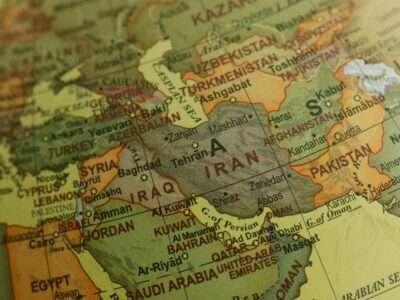05/09/2024
Stella Liantsi
South and East Asia Researcher,
Global Human Rights Defence.
Despite the International Criminal Court’s (ICC) arrest warrant, Mongolia welcomed President Putin with a grand ceremony in its capital, Ulaanbaatar. Despite protests and calls from Ukraine to arrest Mr. Putin and comply with the binding international arrest warrant, Mongolian President Ukhnaagiin Khürelsükh met and maintained a close diplomatic relationship with Putin despite his status in the international community.
Putin’s visit was not only important for current geopolitics but also has deep historical ties. It marked the 75th anniversary of the two nations’ establishment of Mongolia’s national railway operator as well as the 85th anniversary of the Battle of Khalkhin Gol where Soviet and Mongolian forces united to defeat Japanese forces during World War II. From a contemporary geopolitical standpoint, the visit’s significance is underscored by a third historical marker: the fifth anniversary of a comprehensive strategic cooperation between Russia and Mongolia. Either way, Mongolia’s historical ties with Russia date back to its alliance with the Soviet Union for over seven decades. However, the nation was obliged to change its political and economic ties as communism collapsed and the post-Cold War system underwent a geopolitical realignment. By achieving this, Mongolia became the first country in Asia to transition from a communist to an open economy and democratic political system. It gained support from the United States and other Western nations, who welcomed the nation as an exemplary role model for the area.
The ICC’s warrant issued in March 2023 accused Russian President Vladimir Putin of the alleged war crime of unlawful deportation of population (children) and that of unlawful transfer of population from occupied areas of Ukraine to the Russian Federation. The ICC was established in 1998 by a treaty and in order to carry out its mandate to prosecute genocide, war crimes, crimes against humanity, and crimes of aggression it depends on the cooperation of its 124 State parties. Member States are obliged to support the arrest and surrender of suspects to the permanent international court which operates without the use of police forces. Mongolia has been a state Party since 2002 when it ratified the Rome Statute.
Ahead of his visit, the ICC reminded its member states that they have ‘an obligation’ to take action. Ukraine’s Foreign Minister called for the Mongolian authorities to arrest Mr. Putin and transfer him to the ICC in the Hague while the European Union voiced concern that Mongolia might refuse to carry out the warrant. However, Mongolia did not publicly respond neither to Ukraine nor to the ICC’s call.
Mongolia struggles to balance its obligations under the Rome Statute, its relationship with global institutions and powers, and its desire to remain friendly with its powerful neighbours. Landlocked between Russia and China, nearly all of Mongolia’s fuel and diesel supply, as well as a substantial part of its electricity, comes from Russia. Mongolia is also on the planned route for a major pipeline that Russia intends to build in order to transport 50 billion cubic metres of natural gas annually from its Yamal area to China. The project, Power of Siberia 2, is Russia’s plan to make up for losing the majority of its gas sales in Europe since the start of the war in Ukraine. The Mongolian leader expressed his expectation that the visit would boost bilateral trade and economic relations highlighting Mongolia’s dependence on Russia for energy and trade.
In conclusion, in theory, the purpose of international law as it is expressed by institutions like the ICC is to maintain global justice and ensure accountability on a global scale. Nonetheless, Mongolia’s warm reception of President Putin despite an active ICC arrest warrant starkly illustrates the gap between legal ideals and geopolitical reality. Although international laws are intended to be legally binding they are frequently difficult to implement due to the intricate interplay between national interests, and economic and regional concerns.
Sources and further readings:
‘Mongolia must uphold its obligations as an ICC State Party – Arrest Vladimir Putin or cancel his visit’ International Bar Association the globe voice of the legal profession (2 September 2024) <https://www.ibanet.org/Mongolia-must-uphold-its-obligations-as-an-ICC-State-Party-arrest-Vladimir-Putin-or-cancel-his-visit> Accessed 4 August 2024.
Magazine Editor, ‘Putin’s visit to Mongolia defies ICC warrant and tests neutral nation’s ‘third neighbor’ diplomacy’ UMBC (3 September 2024) <https://umbc.edu/stories/putins-visit-to-mongolia-defies-icc-warrant-and-tests-neutral-nations-third-neighbor-diplomacy/> Accessed 4 August 2024.
Reuters, ‘Putin gets lavish welcome in Mongolia despite ICC warrant’ Reuters (3 September 2024) <https://www.reuters.com/world/putin-gets-lavish-welcome-mongolia-despite-icc-warrant-2024-09-03/ > Accessed 4 August 2024.
Ruth Comerford, ‘Putiν welcomed in Mongolia despite ICC arrest warrant’ BBC (3 August 2024) <https://www.bbc.com/news/articles/cwy527yex0no> Accessed 4 August 2024.








Comments